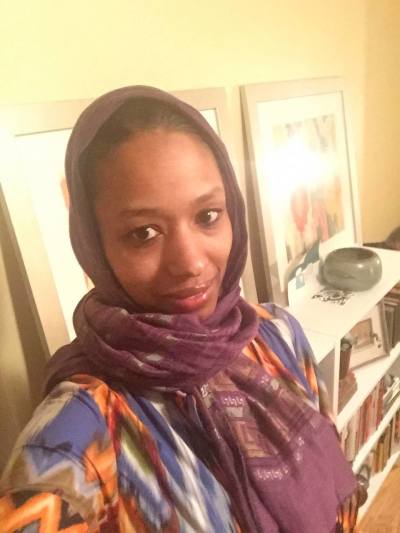Debate Over Wheaton's Suspension of 'Hijab Prof.' Larycia Hawkins Needs More Grace

The debate over whether Christians and Muslims worship the same God could've been constructive. How did it go so wrong?
Larycia Hawkins is the Wheaton College political science professor recently suspended after saying Christians and Muslims "worship the same God." The context was her decision to don a Hijab during advent to show solidarity with Muslims.
Her show of support for the Muslim community may have been in response to presidential candidate Donald Trump arguing for a ban on all Muslims entering the country.
Disclosure: I know Dr. Hawkins. Christian political scientists who study religion and politics are a fairly small group and we tend to find each other. Our paths have crossed on many occasions. I even interviewed for the position she now holds. I have not spoken with her in many years, though I have reached out to her since the controversy. While I admit a heaviness on my heart knowing that Hawkins might lose that job due to a news story that The Christian Post broke, I'm confident that my main point here would be the same if we had never met.
Hawkins was not suspended for wearing the hijab, as some liberal websites have claimed. Rather, the question is whether her statement that Christians and Muslims "worship the same God" is in contradiction to the college's Statement of Faith, to which all professors must agree.
The issue is one for which theologians disagree. Evangelical theologian Scot McKnight pointed out, it depends on what one means by "same."
Catholic theologian Francis Beckwith noted, in relation to the controversy, some argue that if you're monotheist (believe there is only one God), then any reference to God must, by definition, refer to The God. I'm not arguing this is the correct position, but point it out to show that those for whom the Bible is authoritative can disagree even after thinking deeply about the question.
In an interview with The Christian Post, Hawkins clarified that she was not saying that Christians and Muslims believe the same thing (that would be offensive to Muslims as well). In another interview, she added her Facebook post was not intended as a theological treatise, rather her goal was to express solidarity with Muslims during this time of concerns about anti-Muslim bigotry.
Even if you believe Hawkins' theology is misguided, hopefully you can recognize the good intentions behind her words and actions.
The context of this debate is important to understand.
First, how the debate has ensued is partly a difference between theologians and non-theologians. Whether Christians and Muslims worship the same God is the type of debate theologians love to delve into. If you gathered a bunch of Evangelical theologians in a room and asked them that question, you would no doubt hear them cite numerous scripture references, doctrines and long dead theologians, and all with a gleam in their eye.
For street-level Evangelicals, the concerns can be different. "How can I best witness to my Muslim friend, co-worker or neighbor," could be at the front of their mind as their hear anti-Muslim rhetoric from presidential candidates, or even fellow Evangelicals.
Neither of those approaches are better than the other, it's simply different ways to think about the issue. Indeed, both the theologians and street-level Evangelicals need to be in conversation with each other, with each side adding its strengths for the betterment of our understanding.
Second, Evangelicals have often been careful to guard the boundaries of their movement. This is perhaps especially true today. As cultural pressures to abandon core Christian doctrines are applied from many centers of influence in America, devout Evangelicals seek to ensure that their fellow adherents do not give in to those pressures.
Since Wheaton is one of the preeminent Evangelical institutions in the nation, Hawkins' remarks raised some red flags. Some Evangelicals likely worried it was a sign that the school was straying outside the camp.
These reactions, though, were too often knee jerk. Efforts to understand why Hawkins did what she did, and said what she did, were too few. Wheaton's decision to suspend Hawkins was likely aimed at quelling its critics. Additionally, as political scientist Tobin Grant pointed out, Hawkins shouldn't have been suspended in such a public manner and without due process.
In defense of Hawkins, Miroslav Volf, a theologian that Hawkins cited in arguing that Christians and Muslims worship the same God, wrote that her suspension was motivated by "enmity toward Muslims." This response also lacked grace.
While Volf's op-ed contained a few helpful points, those points got lost in his unjustifiable accusations. If Volf was trying to help Hawkins, he likely did more harm than good. If Volf was trying to foment Wheaton-bashers, I'm sure he was a sterling success.
Hence, Hawkins got caught in the crossfires of the Culture War after various sides assumed the worst motives coming from the other sides. If the differing sides of this debate would instead seek to first understand the others, the result could bear fruit in their mutual desires to share both the truth and the love inherent in the Gospel of Jesus Christ.



























